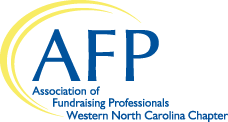The Western North Carolina (WNC) chapter of the Association of Fundraising Professionals (AFP) has released a report analyzing the impact of Hurricane Helene and its impact on the region’s nonprofit sector. Based on a survey of more than 60 WNC nonprofit organizations in January 2025, this infographic report provides critical insights into operational challenges and fundraising disruptions experienced in the aftermath of the disaster.
The survey, conducted by AFP WNC, gathered data from a diverse range of nonprofit organizations to assess how the storm affected their ability to deliver services, secure funding, and maintain donor and volunteer engagement. Findings highlight significant obstacles,
including infrastructure damage, decreased donations, and increased demand for services, while also identifying key strategies organizations are prioritizing to remain resilient.
Key findings include:
– Operational Disruptions: 50 percent of nonprofits reported needing repairs, 53 percent faced fundraising challenges, 34 percent had logistics/supply chain issues, and 48 percent experienced staffing difficulties.
– Revenue Impact: While 33 percent saw increased revenue due to new donations/grants, 47 percent experienced decreased revenue.
– Barriers to Funding: Increased service needs strained resources, while barriers like grant eligibility and complex applications limited funding access.
– Financial Strain: Nearly half of nonprofits saw revenue decline, and two out of three canceled fundraising events.
– Long-Term Outlook: While 75 percent of nonprofits are moderately confident in recovery, 23 percent expect long-term financial hardship.
“Hurricane Helene has shown us time and time again that our strength is in the community of people around us,” said Kate Frost, AFP WNC President. “Nonprofits are at the heart of disaster response and recovery, and understanding their operational and funding challenges is vital to the recovery process. In addition to providing services that strengthen our families, schools, neighborhoods, and outdoor spaces, nonprofits are a significant economic force in Western North Carolina, employing tens of thousands of individuals. When donations and sponsorships decrease because of the storm’s impact on our community, so do the high-impact programs and
services these organizations offer.”
AFP WNC hopes that the findings will inform disaster recovery and serve as a resource for funders and policymakers looking to bolster their crisis-response strategies.

